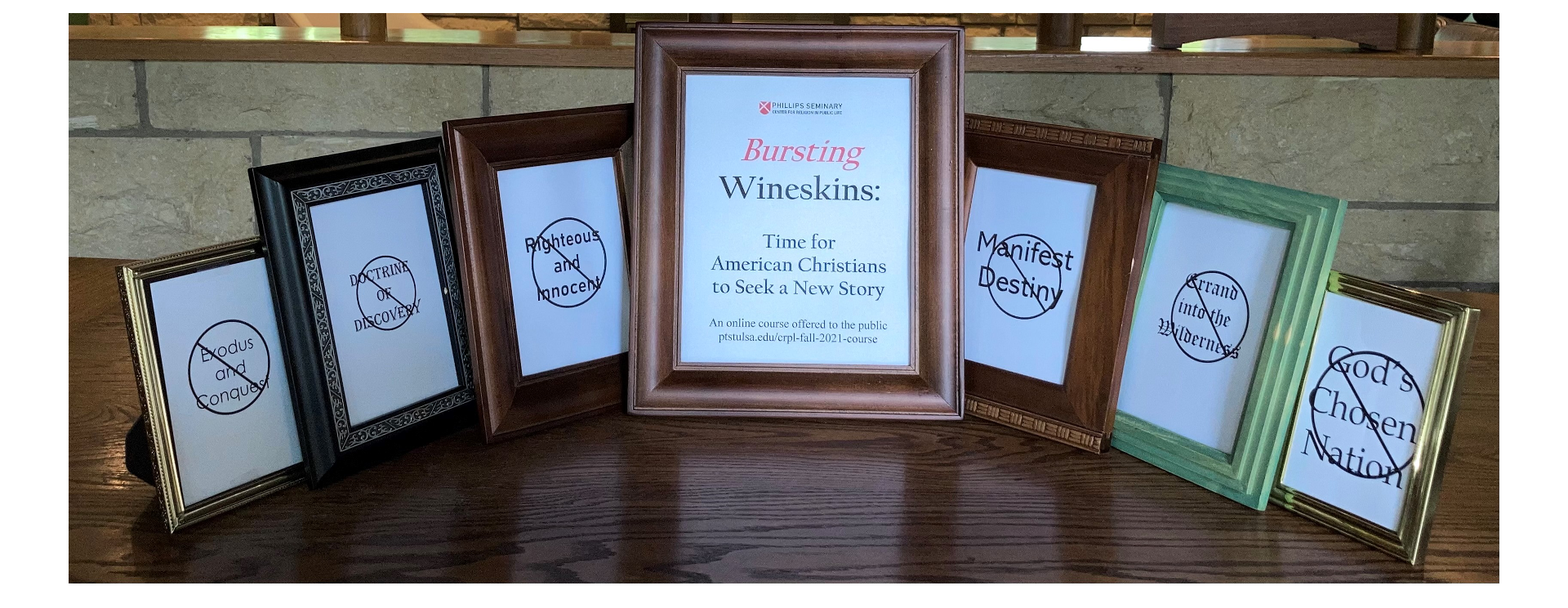A Future for Christianity in America
Last week, I finished recording the last two lectures for the online, public course I’ve taught (five of the six lectures are available for anyone to view on the seminary’s YouTube page). The course, “Bursting Wineskins,” starts with an accounting of why the Christian-entwined-with-America story is ending, moves through how one might interpret religion/culture/politics, and then proceeds to use numerous primary historical documents to illustrate conflicting positions Christians have staked out in American public life.
This course required more new preparatory reading for me than perhaps any course I’ve taught, for credit or not for credit. Here are a few lessons I learned along the way:
- Time after time, I exclaimed to myself, “Why didn’t I know that before?” One of the truly new learnings came from reading Darren Dochuk’s outstanding work, Anointed with Oil, which documents in detail the close relationship between Christianity and oil in both ecumenical and fundamentalist expressions. I knew how important Rockefeller dollars were to funding prominent institutions of the Protestant mainline. I did not know anything about the independent oilmen and wildcatter dollars that fueled key fundamentalist (BIOLA) and evangelical (Fuller) institutions and even the very essays that become “The Fundamentals.”
- There are many sources for accessing primary documents of Christian histories in the U.S. online. The websites include too many to detail here. Just look up “Christian women and suffrage” or “Christian sermons on slavery” or “Frederick Douglass and 4th of July speech” or “Christians and the labor movement” and the marathon would begin.
- The Civil War ended slavery and the 14th and 15th Amendments to the Constitution were designed to supersede the founding document in terms of enslaved Americans. That I knew. But I did not realize the extent to which those amendments and the culture required to uphold those amendments have been challenged continuously since 1870. In this sense, the Civil War never ended—to this day. From Jim Crow to today’s efforts to restrict voting, to gerrymandering, and to claiming states’ rights against federal power, Christians have marched, staffed the barricades, and preached for and against an America in which freedom requires social justice and serious attention to equality.
- Exploitation of labor—slave labor, indentured labor, immigrant labor (documented and undocumented)—and the lust for cheap resources (land, minerals, fossil fuels) are as American as apple pie. A sarcastic version of “This Land,” sung by those Christian preachers and politicians, who claimed Anglo-Saxon divinely given superiority, might go like this: “This land is our land, this isn’t your land, from the Aleutian Islands to the gulf stream waters, from Hawaii to Madawaska, God took this land from you to give to us.” Christians have been active participants, defenders, and protestors against those practices which are definitively un-Christian but which drew and draw energy from a Christianized ideology of Manifest Destiny.
- My longest lecture (nearly 45 minutes) narrated documents related to supporting hierarchy and working for equality. In 45 minutes, all I could do was introduce hearers to a very few documents regarding the hierarchies of race and color, and those addressing gender. Christianity in America has spent a great deal of time, energy, money, and attention on preserving or, to a lesser extent, undermining social hierarchies.
- The Christianized ideology of American exceptionalism results in an immature nation unable to embrace finitude and error and churches in danger of becoming imperial chapels. Christians have contributed heavily to that ideology. And Christians need to do everything in our power to delegitimate that ideology and to offer alternatives.
Whether Christianity in America will prove itself to be—on balance—conservative, progressive, anchored to warring political parties, brilliantly creative and independent, or irrelevant hinges on how we Christians do the work of undermining a deadly ideology and offering vibrant alternatives.
Dr. Gary Peluso-Verdend is president emeritus at Phillips Theological Seminary and is the executive director of the seminary’s Center for Religion in Public Life. The opinions expressed in this blog are those of the author. Learn more about the Center’s work here and about Gary here.


Comments are closed.